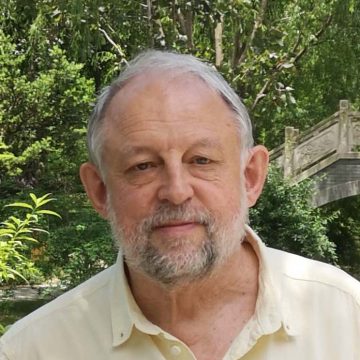
Social Implementation
Yuriy Aristov
Specially Appointed Professor
Physical ChemistryChemical KineticsCatalysisChemical Engineeringadsorption for energy conversion
Biography
Yuri Aristov reveived his BSc and MSc in Mechanochemistry from the Moscow Physico-Technical Institute (1977), PhD in Catalysis (1984) and Doctoral Degree in Energy Storage/Transformation (2003) from the Boreskov Institute of Catalysis (BIC), Novosibirsk, Russia. For ten years he was an Associate Professor and a Lecturer at Novosibirsk State University. Currently he is a Professor of Physical Chemistry (2007), a Head of Group of Energy Accumulating Materials and Processes at BIC, and a Specially Appointed Professor of Tokyo Institute of Technology (2018-2020).
Yu. Aristov was a Visiting Researcher/Professor at CNR Institute of Advanced Technologies for Energy (Italy), Institute of Chemical Engineering (Poland), University of Warwick (UK), RWTH-Aachen (Germany), and Tokyo Institute of Technology (Japan). He is a member of the Editorial Board of the Energy (Elsevier) and Future Cities and Environment (Oxford University Press). Yu. Aristov (with co-authors) received (2013) the Koptyug Memorial Award of the Russian Academy of Sciences on adsorption heat transformation technologies/apparatuses.
His research interests were in the field of radiation chemistry, low temperature electron tunneling, fractal analysis of porous solids, thermochemical heat storage. He is currently working on adsorptive systems for transformation of low temperature heat as well as on novel composite sorbents for heat storage, gas drying, maintaining relative humidity, regeneration of heat and moisture in ventilation system, etc. He is an author of more than 200 papers in peer-reviewed journals (cited in Scopus about 5,000 times, h-factor = 40), 28 patents, 8 book chapters and 2 books.
Research Projects
-
New family of composite sorbents “salt in porous matrix” was developed and studied for transformation of low temperature heat, gas drying, maintaining relative humidity and other applications.
-
A new Large Temperature Jump (LTJ) method was suggested and developed to simulate and study the dynamics of isobaric ad/desorption in adsorptive heat transformers, chillers and heat pumps.
-
Dynamics of water, methanol, ammonia and ethanol adsorption was studied under various conditions of adsorptive chilling cycle as a function of the adsorbent grain size, bed thickness, boundary temperatures, etc.
| 1977 – 1982 | Boreskov Institute of Catalysis: Engineer |
|---|---|
| 1982 – 1986 | Researcher |
| 1986 – 1995 | Senior Researcher |
| 1995 – 1997 | Head of Group |
| 1997 – 2013 | Head of Laboratory |
| – since 2013 | Principle Researcher |
| 2007 – | Professor of Physical Chemistry |
| 2018- | Specially Appointed Professor, Tokyo Institute of Technology |
| 2013 | Koptyug Award of the Siberian Branch of the Russian Academy of Sciences |
|---|
| 2002 | Yu.I. Aristov, G. Restuccia, G. Cacciola, V.N. Parmon, A family of new working materials for solid sorption air conditioning systems, Appl. Therm. Engn., 2002, v.22, N 2, pp.191-204. |
|---|---|
| 2007 | Yu.I. Aristov, Novel materials for adsorptive heat pumping and storage: screening and nanotailoring of sorption properties, J. Chem. Engn. Japan, 2007, v. 40, N 13, pp. 1241-1251. |
| 2012 | Yu.I. Aristov, Adsorptive transformation of heat: principles of construction of adsorbents database, Applied Therm. Engn., 2012, v. 42, pp. 18-24. |
| 2013 | Yu.I. Aristov, Challenging offers of material science for adsorption heat transformation: a review, Appl. Therm. Engn., 2013, v. 50, N 2, pp. 1610-1618. |
| 2014 | Yu.I. Aristov, Concept of adsorbent optimal for adsorptive cooling/heating, Appl. Therm. Engn., 2014, v. 72, pp. 166-175. |
| 2017 | Yu.I. Aristov, Adsorptive transformation and storage of renewable heat: review of current trends in adsorption dynamics, Ren. Energy, 2017, doi: 10.1016/j.renene.2016.06.055. |
